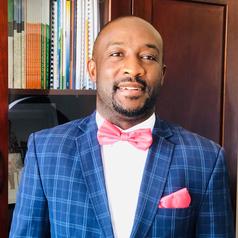
Kangacepe Zulu
I am a PhD student at the University of Bolton, undertaking a doctoral degree by research. I am analyzing state and non-state actors' approaches to climate change interventions in Zambia. Basically trying to investigate the stakeholder-coordination nexus and bring out valuable lessons for public policy, in general, and Africa's sustainability in view of climate change, specifically.
My current field of work revolves around development planning and public policy. But I have an interest in other topical issues such as politics (and the science behind it) and media.
I am also a Theologian in the making. Trinity College of the Bible and Theological Seminary, USA, was gracious enough to offer me a distance learning opportunity; so I am slowly chasing after an MA in Systematic Theology.
I hope I haven't forgotten to also mention that I am a trained computer programmer... I am supposed to get machines to do stuff for us. But haven't done much programming in recent years!
Less ![]()
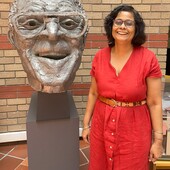
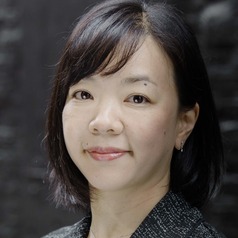
Kanna Hayashi
Research Scientist at the British Columbia Centre on Substance Use & St. Paul's Hospital Chair in Substance Use Research and Associate Professor, Faculty of Health Sciences, Simon Fraser University
I am the St. Paul's Hospital Chair in Substance Use Research and Associate Professor at the Faculty of Health Sciences, Simon Fraser University and a research scientist at the British Columbia Centre on Substance Use in Vancouver, Canada. Trained in epidemiology, mixed-methods and community-based research approaches, I conduct research to inform public health-oriented approaches to laws, policies and programs and thereby reduce drug-related harm among people who use drugs.
Less ![]()
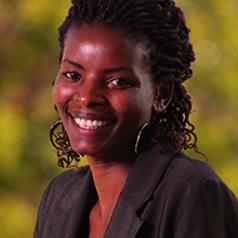
Kanyiva Muindi
Associate Research Scientist, African Population and Health Research Center
Kanyiva Muindi is an associate research scientist and a FLAIR research fellow at the African Population and Health Research Center (APHRC). She works under the Urbanization and Wellbeing Research Programme and has over ten years’ research experience on urbanisation issues. Kanyiva is passionate about air quality, lay perceptions of exposure to air pollution and the effects of this exposure on health. Her fellowship work is seeking to address household air pollution in Kenyan rural households through the introduction of ethanol cookstoves. She most recently worked on an urban refugee project on access to infrastructure among refugees living in Nairobi. She holds a PhD in epidemiology and global health from Umeå Universitet, Sweden and a master’s degree from the University of the Witwatersrand, South Africa.
Less ![]()

Kapil Chalil Madathil
Wilfred P. Tiencken Professor of Industrial and Civil Engineering, Clemson University
Kapil Chalil Madathil holds the Wilfred P. Tiencken Endowed Professorship at Clemson University. His area of expertise is in applying the knowledge base of human factors to the design and operation of human-computer systems that involve rich interactions among people and technology. He draws on qualitative and quantitative methodologies including ethnography, contextual inquiry and controlled behavioral experiments to understand how humans perceive, make sense of, and interact with human-machine systems. He has been a principal investigator or co-principal investigator for more than 30 research grants and awards, generating more than $24 million in funding. His research work is funded by the Agency for Healthcare Research and Quality, U.S. National Science Foundation, Office of Naval Research, U.S. Department of Defense, Department of Education, Department of Labor, National Institutes of Health and several other industry and state agencies. He teaches courses on human factors and ergonomics and graduate courses on accident analysis, human-centered system design and human-machine interaction. He is the Director of the Center for Workforce Development, a South Carolina Commission on Higher Education-approved, statewide initiative to improve workforce. He serves as the Associate Editor-in-Chief of the International Journal of Industrial Ergonomics. He is also the Associate Editor for journals Ergonomics in Design and Human Factors in Healthcare, Program Chair for the Human Factors and Ergonomics Society’s Computer Systems Technical Group, Editorial Board Member for Applied Ergonomics journal, and a technical reviewer for 30 different journals.
Less ![]()
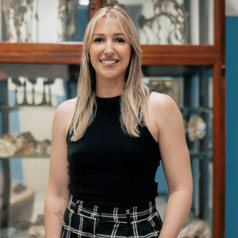
Kara Adams
Post-Doctoral Researcher, University of Cape Town
Kara is a forensic anthropologist and archaeologist, who completed their BA Honours specialization in anthropology at the University of Western Ontario and their MSc in forensic anthropology at the University of Edinburgh. With a PhD from the University of Cape Town, she conducted research on the impact of clothing on decomposition in forensic contexts. As a post-doctoral researcher, she is working to establish standardised procedures for biological sampling for DNA. She has diverse fieldwork experience, including work in Germany, Canada, Cape Town, and Cyprus.
Less ![]()

Kara Dadswell
Senior Lecturer in Psychology, Victoria University
Kara has research expertise in physical activity and sport promotion, and increasing the representation of girls and women in leadership roles within the sport sector.
Less ![]()
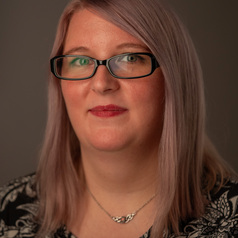
Kara Gray-Burrows
Lecturer in Behavioural Sciences & Complex Intervention Methodology, University of Leeds
Dr Kara Gray-Burrows
I am a Lecturer in Behavioural Sciences & Complex Intervention Methodology in the School of Dentistry at the University of Leeds, UK.
I am a Chartered psychologist working in both research and teaching. The key focus of my research is in improving population health, particularly the health of children and young people. My main interests are in behaviour change, the development and evaluation of complex interventions, with further interests in implementation science, systems approaches, and patient and public involvement in research. I work with a range of stakeholders, including health professionals, early-years workers, charities, government bodies, and commercial companies to develop and evaluate preventive interventions to improve the oral health of young children. I have a passion for involving patients and the public in research, including using creative methods to actively engage children in research with the aim of producing high-quality needs-led research that can inform policy and practice.
Less ![]()
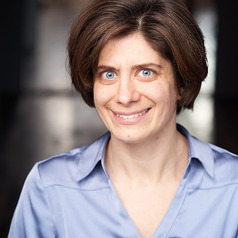
Kara Ross Camarena
Assistant Professor, Loyola University Chicago
Kara Ross Camarena is an Assistant Professor, who specializes in political economy of migration. Her research asks questions about how human mobility and conflict interact and considers implications for development and foreign aid. Professor Camarena’s work has been published in the American Journal of Political Science, PLOS One, and World Development. She is a faculty affiliate of the Pearson Institute for the Study and Resolution of Global Conflicts and she has done fieldwork in East Africa. Before joining Loyola University Chicago, Professor Camarena was a Postdoctoral Researcher at the Harris School of Public Policy, University of Chicago. She has partnered with government and non-government organizations to evaluate migrant and development programs. Before returning to the academy, she worked in the non-profit sector in the US and in development in Tanzania.
Less ![]()
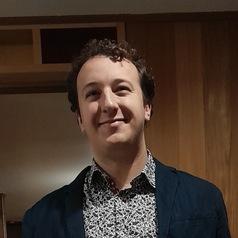
Karel Brandenbarg
Policy Researcher, Political Science, China Institute, University of Alberta
Karel graduated from the BA Honors program at the University of Alberta with a major in Political Science and a double minor in Economics and Philosophy. His honors thesis focused on the ethical implications of realist International Relations theory. He currently works as a policy researcher at the China Institute at the University of Alberta. He previously worked as a research assistant with the Taiwan Studies program at the University of Alberta focusing on Taiwan-Chinese relations and regional security. Karel is also an avid traveller and outdoor enthusiast, so when he isn't doing research, he’s probably out exploring the world!
Less ![]()
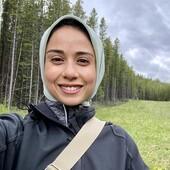

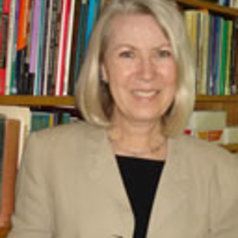
Karen Beckwith
Professor of Political Science, Case Western Reserve University
Karen Beckwith is the Flora Stone Mather Professor in the Department of Political Science at Case Western Reserve University. She received her B.A. from the University of Kentucky (1972) and her M.A. and Ph.D. from Syracuse University (1977, 1982). Teaching primarily in the areas of US politics, political movements, and women, gender, and politics, she has special interests in the United States and West Europe, particularly Britain and Italy.
Professor Beckwith’s current research includes projects on 1) how social movements respond to loss; 2) gendered competition in party leadership contests in parliamentary democracies; and 3) patterns of women’s appointments to cabinet posts in North America and West Europe. For the latter research she was awarded the 2012 Carrie Chapman Catt Prize for Research on Women and Politics. In 2013, she was honored by the Midwest Women’s Caucus for Political Science as the Outstanding Professional Scholar.
In the spring term of 2014, Professor Beckwith was the Fulbright-Scotland Visiting Professor at the Institute for Advanced Studies in the Humanities at the University of Edinburgh, where she worked on her project What’s New? Institutional Transformation and Women’s Political Representation. During that time, she spoke at several British and European universities, and she concluded her Fulbright Professorship by interviewing Members of the Scottish Parliament about the forthcoming referendum on Scottish independence.
Professor Beckwith is Lead Editor of a new series of books to be published by Cambridge University Press: Cambridge Studies in Gender and Politics, with Christina Wolbrecht (University of Notre Dame) and Lisa Baldez (Dartmouth College). She was the founding editor, with Lisa Baldez (Dartmouth College), of Politics & Gender, the journal of the Women and Politics Research Section of the American Political Science Association.
Author of numerous scholarly articles, she is the co-editor of Political Women and American Democracy (Cambridge University Press, 2008) and Women’s Movements Facing the Reconfigured State (Cambridge, 2003), and author of American Women and Political Participation (Greenwood Press, 1986).
Less ![]()

Karen Benjamin Guzzo
Professor of Sociology and Director of the Carolina Population Center, University of North Carolina at Chapel Hill
Dr. Guzzo received her PhD in Sociology in 2003 from UNC Chapel hill, followed by postdoctoral work at the University of Pennsylvania. After holding faculty positions at other universities, Dr. Guzzo returned to UNC Chapel Hill in 2022 to join the Sociology faculty and serve as Director of the Carolina Population Center.
Less ![]()
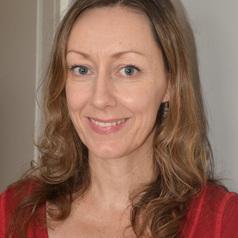
Karen Black
Leading Education Professional, UNSW Sydney
My research interests lie within the fields of mammalian palaeontology, taxonomy, morphology, phylogeny,ontogeny and biocorrelation. My area of special expertise is vombatomorphian marsupials (including koalas and diprotodontoids). Over the course of my research I have named new families, genera and species of marsupials including: Maradidae (Black 2007), Marada, Marada arcanum (Black 2007); Diprotodontidae, Silvabestius, Silvabestius johnnilandi,S. michaelbirti (Black & Archer 1997a); Palorchestidae, Palorchestes anulus (Black 1997); Phascolarctidae, Nimiokoala, Nimiokoala greystanesi (Black & Archer 1997b); Litokoala garyjohnstoni (Louys, Black, Archer, Hand & Godthelp 2007); Pseudocheiridae, Pseudokoala cathysantamaria (Archer, Black & Nettle 1997) .
Less ![]()
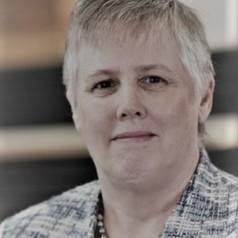
Karen Handley
Senior Lecturer, Business School, University of Newcastle
I'm an accounting academic with a PhD in Accounting from Macquarie University, MBA from the University of Cape Town in Finance, and BSC Honours majoring in Computer Science and Accounting at Rhodes University, South Africa. I have been employed as a software developer in mining and retail; as a small business owner in both Canada and Australia; as an academic in Canada and Australia teaching retail management and accounting and finance subjects.
I am also a Chartered Accountant.
My research interests centre on Small and Medium-sized entities. I have published articles and book chapters on accounting standard setting; knowledge management; and work-life balance in this sector and in the accounting profession. I have completed a number of studies for industry partners including on social impact measurement and work-life balance. I am currently working on a number of projects funded by the NSW State Insurance Regulatory Authority examining the impacts of COVID on SMEs and mental health in micro businesses.
Less ![]()
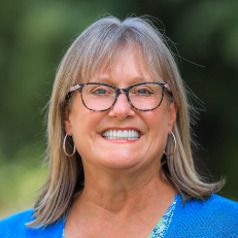
Karen Hickman
Professor and Director of Environmental Science, Oklahoma State University
Karen Hickman, Ph.D., is a grassland ecologist and professor of natural resource ecology and management at Oklahoma State University. She serves as the director of the environmental science program in the Ferguson College of Agriculture. Her research focuses on invasive forages and grassland/rangeland ecology in the Central and Southern Great Plains. Hickman is president of the Society for Range Management. She also is owner/operator of her family's farm and ranch in northwest Oklahoma.
Less ![]()

Karen Howells
Senior Lecturer in Sport and Exercise Psychology, Cardiff Metropolitan University
My specialist area is in sport psychology. I am a Chartered Sport Psychologist with the British Psychological Society (BPS) and am registered with the Health and Care Professions Council (HCPC).
My current research interests are in the area of elite sport performance particularly in relation to adversity and psychological growth, post-Olympic blues, depression, body image, elite swimming, and applied sport psychology consultancy.
Less ![]()
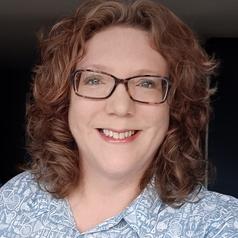
Karen Jones
Assistant Professor in the School of Education, Durham University
Karen Jones is Assistant Professor (Research) at the School of Education. Following her degree in mathematics Karen qualified as a secondary mathematics teacher (QTS) and a careers advisor. After several years working in a wide range of schools and colleges Karen joined the Centre for Evaluation and Monitoring (CEM) in 2004 and then the School of Education in 2017. With over 14 years of research experience at Durham University, Karen specialises in quasi-experimental designs, mixed-methods research, assessment and the analysis of large secondary datasets. Karen is interested in a wide range of research areas including the effects and side-effects of school inspections and accountability systems (the subject of her ongoing PhD thesis), progress in mathematics, measuring student attitudes and the impact of grammar schools and independent schools. She is currently investigating the differential impact of Covid-19 lockdown on students' writing skills.
Less ![]()
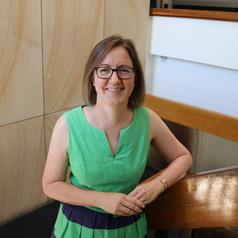
Karen Livesey
Senior Lecturer of Physics, University of Newcastle
Dr Karen Livesey is the 2023 Women in Physics lecturer, touring the nation thanks to the Australian Institute of Physics. She is a Superstar of STEM in 2023-24, awarded by Science and Technology Australia. Along with teaching theoretical physics at the University of Newcastle, she researches nano-magnets with biomedical and technological applications.
Less ![]()
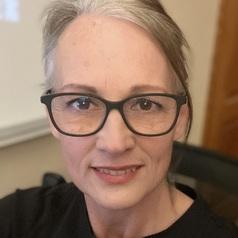
Karen Luke
PhD candidate, CQUniversity Australia
Karen Luke is a PhD candidate researching the relationship between horse welfare and rider safety. She has expertise in ridden horse behaviour, ridden horse welfare and human behaviour change. Her research has shown that rider safety can be improved through improving horse welfare. She has also developed a novel approach to horse welfare and training based on systems thinking.
Karen works on education and horse welfare policy with organisations such as Pony Club Australia.
Less ![]()
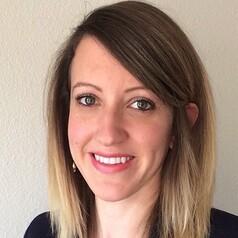
Karen Magruder
Assistant Professor of Practice in Social Work, University of Texas at Arlington
Compassionate and conscientious, I am dedicated to a career which blends my passions for mental health, aging, and environmental justice with my love of teaching. I bring to the classroom a broad set of practice experience with a range of populations and social issues. My recent research publications focus on quality of life in long-term care facilities, environmental justice, and student success. I find joy in serving vulnerable populations both on and off the clock, and I am always striving to improve myself, my work, and my community. There is no greater privilege than to be entrusted to offer support, encouragement, instruction and guidance to the next generation of social workers.
Less ![]()
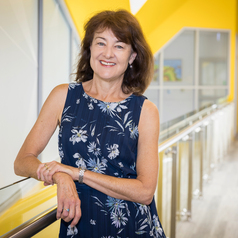
Karen McFadyen
Research Fellow, Faculty of Health, Southern Cross University
Karen is currently working on smoking and vaping cessation projects - particularly in the provision of training and materials to aid health professionals and organisations to support smoking cessation in pregnant Indigenous women. She is experienced in staff wellbeing, workplace health and productivity interventions and research projects. Karen is passionate about improving lives through the provision of clear, useful information combined with small changes in behaviour. She holds postgraduate qualifications in business management and marketing and enjoys outdoor activities with her family, reading, and taking long walks along the beach.
Less ![]()
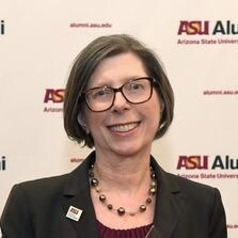
Karen Mossberger
Professor Emerita, School of Public Affairs, Arizona State University
Karen Mossberger is Professor Emerita in the School of Public Affairs in the Watts College of Public Service and Community Solutions at Arizona State University. She is Director Emerita of the Center on Technology, Data and Society and also a senior sustainability scholar with the Julie Ann Wrigley Global Institute of Sustainability. She formerly held the Frank and June Sackton Chair in the School of Public Affairs. Her research interests include local governance, urban policy, digital inequality, evaluation of broadband programs and digital government.
She is author/editor of 7 books, including "Choosing the Future: Technology and Opportunity in Communities" (Oxford University Press 2021, with C. Tolbert and S. LaCombe), which won the 2022 Goldsmith Prize for Best Academic Book from the Shorenstein Center, Harvard Kennedy School of Government. The book demonstrates with nearly two decades of data the impact that widespread, inclusive broadband use has for community prosperity. She is also a co-editor for "Transforming Everything? Evaluating Broadband's Impacts Across Policy Areas" (Oxford University Press 2021, with Eric Welch and Yonghong Wu).
Other books on technology, inequality, and public policy include "Digital Cities: The Internet and the Geography of Opportunity" (Oxford University Press 2012, with C. Tolbert and W. Franko), "Digital Citizenship: The Internet, Society and Participation" (Mossberger, Tolbert and McNeal 2008, MIT Press), and "Virtual Inequality: Beyond the Digital Divide" (Mossberger, Tolbert and Stansbury 2003, Georgetown University Press), She is also a co-editor of the "Oxford Handbook of Urban Politics" (2012 with S. Clarke and P. John) and author of "The Politics of Ideas and the Spread of Enterprise Zones" (2000, Georgetown University Press).
In 2023, she received the NASPAA/ASPA Research Award from the Network of Schools of Public Policy, Affairs and Administration and the American Society for Public Administration. She was also honored with the ASU Founder's Day Award for Faculty Research in 2023. Her research on “Race, Place, and Information Technology” won the best paper award for the Public Policy Section of the American Political Science Association in 2005, and "The Effects of E-Government on Trust and Confidence in Government" was chosen as one of the 75 most influential articles in the first 75 years of Public Administration Review. In 2018, she received the Donald C. Stone Scholar award from the American Society for Public Administration's Section on Intergovernmental Administration and Management (SIAM). In 2019 she was selected by UK nonprofit Apolitical as one of the World's 100 Most Influential People in Digital Government - a list including practitioners and academics.
Her research has been supported by the National Science Foundation, Smith Richardson Foundation, the U.S. Department of Housing and Urban Development, the Chicago Community Trust, and the John D. and Catherine T. MacArthur Foundation, among others. She has served as president of the American Political Science Association's Urban Politics section and Information and Technology Politics section, chair of the International Political Science Association's research committee on Electronic Democracy and was elected a fellow in the National Academy of Public Administration in 2016.
Education
Ph.D. Political Science, Wayne State University 1996
M.A. Political Science, Wayne State University 1992
B.A. Honors Political Science (Summa Cum Laude), Wayne State University, MI 1991
Less ![]()
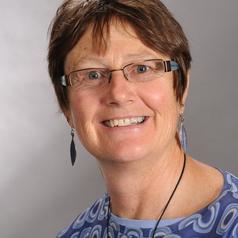
Karen Nairn
Professor, College of Education, University of Otago
Karen's research is youth-focused. The book Fierce Hope. Youth Activism in Aotearoa (Bridget Williams Books) reports her recent Marsden-funded research about what inspires young people to join others to create social change. An earlier Marsden-funded project culminated in the book Children of Rogernomics: A neoliberal generation leaves school. That book was about young people coming to adulthood in the wake of New Zealand's neoliberal reforms, connecting their accounts with the wider social and economic story.
Less ![]()
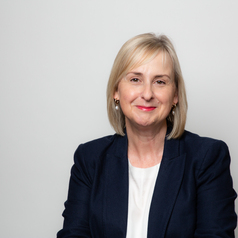
Karen Nokes
Lecturer in Law, UCL
Dr Karen Nokes is an interdisciplinary scholar whose research uses insights from psychology and business and management to explore the law and the legal system in context.
Karen’s research interests focus on using interdisciplinary approaches/methodologies to explore individual, group and collective action and decision making within the legal system.
One particular area of interest is the psychological processes of judgment and decision making, including ethical decision making within complex and dynamic environmental contexts. Karen undertakes empirical legal research and is a member of the Centre for Empirical Legal Studies.
Karen is currently working with Professor Richard Moorhead (Exeter), Professor Rebecca Helm (Exeter) and Dr Sally Day (Exeter) on a three year ESRC funded project 'Professional Pathologies, Causal Pathways and the Post Office Miscarriages of Justice.'
Dr Nokes joined UCL Faculty of Laws as a Lecturer in 2021. She holds a PhD in Business and Management from the University of Manchester, an LLB from the University of Cardiff and a BSc in psychology from the Open University.
She was admitted as Solicitor of the Senior Courts of England & Wales in 1992. Prior to joining UCL, Karen was a Research Fellow in the Centre for Crime, Justice, and Policing at the University of Birmingham. Prior to postgraduate study, Karen was a solicitor in private practice after which she spent nearly 20 years working for the Law Society/Solicitors Regulation Authority where she held a number of senior posts, including Head of Practice Standards and Director of Supervision. She has extensive experience of legal regulation and of practitioner engagement.Karen received a scholarship from the Economic and Social Research Council for her doctoral studies and has presented at a number of national and international conferences including the Academy of Management Annual Meeting (2015, 2016 and 2018), British Academy of Management Annual Conference (2017) and the Society of Legal Scholars Annual Conference (2022).
Less ![]()
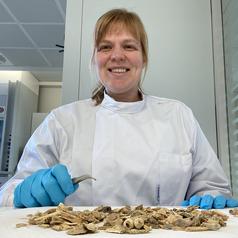
Karen Ruebens
Researcher, Paléaoanthropologie, CIRB, Collège de France
Karen Ruebens received her PhD from the University of Southampton (UK) in 2013 and has since been working as a postdoctoral researcher, first at the MONREPOS Archaeological Research Centre for Human Behavioural Evolution (Neuwied) and then at the Max Planck Institute for Evolutionary Anthropology (MPI-EVA, Leipzig). Her research interests are focused on unravelling Neanderthal behaviour through wider-scale comparative lithic and faunal analyses, most recently including Zooarchaeology by Mass Spectrometry (ZooMS). At the Collège de France Karen will be conducting ZooMS analysis of faunal assemblages from key late Middle and early Upper Palaeolithic sites. Her ongoing ZooMS projects include Salzgitter-Lebenstedt (Mousterian), Ranis (Lincombian-Ranisian-Jerzmanowician), Cassenade and Saint-Césaire (Châtelperronian).
Karen Ruebens a obtenu son doctorat à l'Université de Southampton (Royaume-Uni) en 2013 et travaille depuis en tant que chercheuse postdoctorale, d'abord au MONREPOS Archaeological Research Center for Human Behavioral Evolution (Neuwied) puis au Max Planck Institute for Evolutionary Anthropology ( MPI-EVA, Leipzig). Ses intérêts de recherche se concentrent sur l'élucidation du comportement des Néandertaliens grâce à des analyses lithiques et fauniques comparatives à plus grande échelle, dont plus récemment la zooarchéologie par spectrométrie de masse (ZooMS). Au Collège de France, Karen effectuera une analyse ZooMS des assemblages fauniques des principaux sites du Paléolithique moyen et supérieur. Ses projets ZooMS en cours incluent Salzgitter-Lebenstedt (Moustérien), Ranis (Lincombien-Ranisien-Jerzmanowicien), Cassenade et Saint-Césaire (Châtelperronien).
Less ![]()
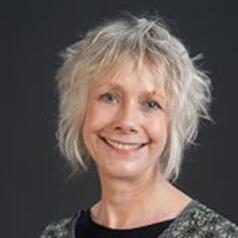
Karen Salmon
Professor of Psychology, Te Herenga Waka — Victoria University of Wellington
Karen Salmon is broadly interested in youth mental health. In particular, her broad focus is on how psychological difficulties (e.g., behavioural problems, depression) develop and how they might be reduced. Her current specific interest iis in how autobiographical memory is related to psychological wellbeing, particularly for children and adolescents. Autobiographical memory is memory for our personal experiences.These kinds of memories play important roles in our lives, including maintaining a sense of identity across time; guiding decisions on future courses of action; and helping to develop and build relationships with others.
Within this broader area, Karen's research (with students and collaborators) asks two main questions. First, how are the qualities of young people's memories of their personal experiences related to their depression, anxiety, and wellbeing? Second, how the qualities of children and adolescents’ reminiscing conversations with the adults in their lives shape their personal memories, their understanding of their world, and their psychological wellbeing?
Less ![]()
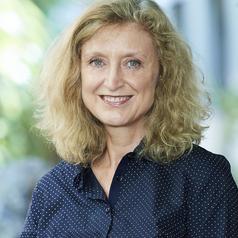
Karen Scott2
Associate Professor, Sydney Medical School, University of Sydney
Associate Professor Karen Scott is Head of Sydney Medical Program's Evaluation Unit. Karen conducts medical education research, including program evaluation, student learning, teacher beliefs, elearning and the culture of healthcare settings. She also researches digital health literacy to understand how parents and young people use and assess health information on the internet and social media. She codesigns educational resources with young people so they can learn to identify trustworthy online health information. Karen is Editor of the journal, Focus on Health Professional Education.
Less ![]()
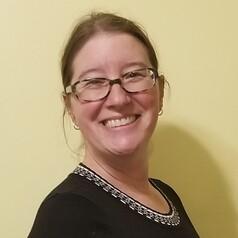

Karen Tan
Assistant Professor of Tourism and Hospitality Management, Middle Tennessee State University
Less ![]()

Karen Thompson
Research Data Specialist, The University of Melbourne
Karen M Thompson is a Senior Research Data Specialist with a passion for data organisation, communication, and working at the intersection of data and cultural collections. She was an actuary for more than two decades, has a Bachelor of Fine Arts (2006) and a Masters in Cultural Materials Conservation (2019). Karen is a Khipu Field Guide Affiliate https://orcid.org/0000-0002-5498-0556
Less ![]()
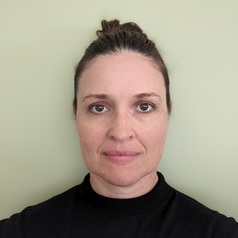
Karen Zoszak
Accredited Practising Dietitian, PhD Candidate, University of Wollongong
Karen is an Accredited Practising Dietitian who has worked in the public hospital and private community settings. She is passionate about enabling people to make positive dietary changes, leading to improvements in health and wellbeing. Karen has previously worked in the information technology industry, having also completed a bachelors degree in applied mathematics and computer science. She is now bringing both skillsets together to undertake a PhD at the University of Wollongong, where she is exploring the role of diet in multiple sclerosis, aiming to improve the lives of people living with MS.
Less ![]()
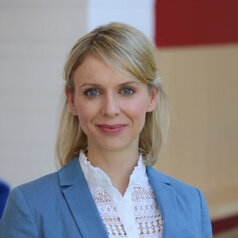
Karen A. Patte
Canada Research Chair in Child Health Equity and Inclusion and Associate Professor, Department of Health Sciences, Brock University
Dr. Karen A. Patte is a Canada Research Chair in Child Health Equity and Inclusion and an Associate Professor in the Department of Health Sciences at Brock University.
Dr. Patte’s research focuses youth health and equity, with a particular focus on mental health and ill-health. Her research program aims to advance understanding of how different contexts and exposures shape health trajectories over time, to inform more effective and equitable preventative practice, policy, and programs.
With training in the health sciences, psychology, public health, and counselling, and collaborating across varied disciplines, her research draws from multiple approaches. Primary methods and designs include longitudinal population-level surveys, mixed and multi-methods, youth engagement, Integrated Knowledge Mobilization, and quasi-experimental designs.
She has published over 100+ peer-reviewed research articles on youth health and leads several related grants with pan-Canadian research teams, including funding from the Canadian Institutes of Health Research (CIHR), SickKids Foundation, and the New Frontiers in Research Fund.
She is the Co-Principal Investigator of the Cannabis, Obesity, Mental health, Physical activity, Alcohol, Smoking, and Sedentary behaviour (COMPASS) Study (www.compass.uwaterloo.ca) with Dr. Scott Leatherdale. COMPASS Is an ongoing prospective cohort study that annually collects data from over 70,000 Canadian secondary schools and the 130+ secondary schools they attend. COMPASS uses a hierarchical quasi-experimental design to evaluate how programs, policies, and built environments impact various youth health behaviours, outcomes, and correlates (e.g., substance use, mental health, eating behaviours, physical activity, screen use, sleep, bullying and discrimination, school connectedness) over time.
Less ![]()

Karen A. Spiller
Thomas W. Haas Professor in Sustainable Food Systems, University of New Hampshire
Karen A. Spiller is the Thomas W. Haas Professor in Sustainable Food Systems and Affiliate Faculty in the Social Work Department at University of New Hampshire, Durham. Karen is engaged in scholarship on the intersection of disciplines, networks and racial equity across the campus and its surrounding community, extending to higher education partners nationally and internationally.
As Principal of KAS Consulting, with a focus on racial equity and intersectionality, Karen works with local, state, regional and national organizations committed to creating equitable public health and sustainable food systems. Involved in state-wide and regional food system work, Karen is a backbone and steering committee member of and the Massachusetts Ambassador serving as lead coordinator of the Ambassador Team for Food Solutions New England (FSNE), a six-state network focused on food system transformation with racial equity at its core. Celebrating its 9th year of national and international participation, Karen co-leads the FSNE’s 21 -Day Racial Equity Habit Building Challenge designed to “build skill and will” and action to address racial inequities, through a food system lens.
Karen serves organizations and their missions in various roles that include board membership of the Boston Food Forest Coalition, Sustainable Business Network of Massachusetts, Northeast Organic Farmers Association: Massachusetts Chapter (NOFA/Mass) and American Independent Business Alliance (AMIBA) and is an Advisory Council member of the Global Council of Science and Environment (GCSE) Leaders’ Alliance. Karen is also a founding member of Southern New England Farmers of Color Collaborative (SNEFCC).
Less ![]()
- Market Data





















